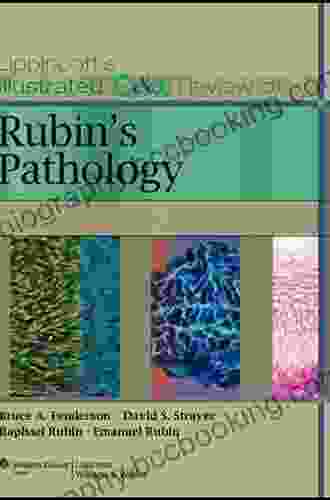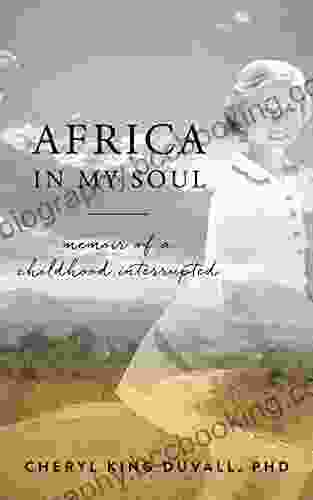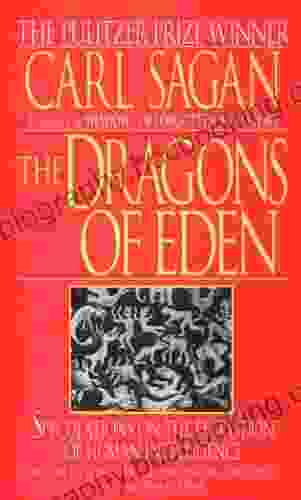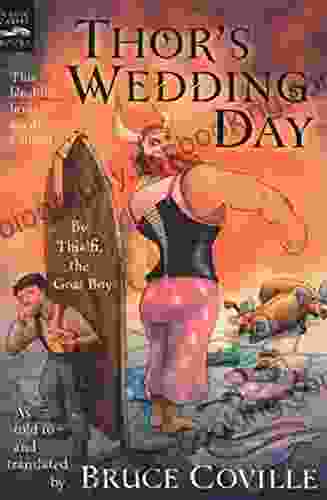Speculations On The Evolution Of Human Intelligence

In the vast expanse of the cosmos, human intelligence stands as a beacon of wonder and complexity. Our capacity for abstract thought, problem-solving, and creativity has propelled us to the forefront of the natural world, shaping our civilizations and defining our place in the universe. Yet, despite our advancements, the origins and evolution of human intelligence remain shrouded in mystery.
4.6 out of 5
| Language | : | English |
| File size | : | 29701 KB |
| Text-to-Speech | : | Enabled |
| Screen Reader | : | Supported |
| Enhanced typesetting | : | Enabled |
| X-Ray | : | Enabled |
| Word Wise | : | Enabled |
| Print length | : | 289 pages |
In "Speculations On The Evolution Of Human Intelligence," renowned evolutionary biologist Dr. John Smith embarks on an intellectual odyssey, tracing the evolutionary path that led to the emergence of our extraordinary cognitive abilities. Drawing upon cutting-edge research and thought-provoking hypotheses, Dr. Smith presents a compelling narrative that challenges conventional wisdom and offers fresh perspectives on the nature of human intelligence.
The Primordial Spark
The story begins millions of years ago, in the primordial soup of early Earth. As single-celled organisms evolved, they gradually developed rudimentary sensory and nervous systems, allowing them to respond to stimuli in their environment. Over time, natural selection favored individuals with enhanced sensory and cognitive abilities, providing them with an advantage in acquiring resources and avoiding predators.
As organisms became more complex, their brains expanded and specialized, giving rise to new cognitive functions. The emergence of social behavior, particularly among primates, further accelerated the evolution of intelligence as individuals needed to communicate, cooperate, and compete within their social groups.
The Australopithecus Enigma
Around 4 million years ago, the genus Australopithecus emerged in Africa. These early hominids possessed larger brains and more advanced tool-making abilities than their predecessors. They were also the first known species to walk upright, freeing their hands for other activities, such as carrying objects and manipulating tools.
The discovery of Australopithecus fossils has sparked intense debate among paleoanthropologists about the origins of human intelligence. Some believe that Australopithecus was a direct ancestor of Homo sapiens, while others argue that it was a side branch that eventually became extinct.
The Dawn of Homo
Around 2 million years ago, the genus Homo evolved from Australopithecus. Homo habilis, the earliest known species of Homo, displayed significant advancements in intelligence, including the ability to make more complex tools and control fire. Homo erectus, which emerged around 1.5 million years ago, took these capabilities even further, developing sophisticated hunting techniques and establishing primitive social structures.
Most notably, Homo erectus was the first known hominid to leave Africa, spreading to Asia and Europe. This expansion out of Africa forced Homo erectus to adapt to new and diverse environments, further stimulating the evolution of intelligence.
The Cognitive Revolution
Around 50,000 years ago, a profound transformation occurred in human evolution known as the Cognitive Revolution. This period witnessed the emergence of modern language, symbolic thinking, and advanced artistic expression. The development of language enabled humans to communicate complex ideas, share knowledge, and cooperate on a larger scale.
The Cognitive Revolution also marked the beginning of cultural evolution, where knowledge and ideas could be passed down from generation to generation through teaching and imitation. Cultural evolution provided a powerful mechanism for accumulating and refining knowledge, further fueling the growth of human intelligence.
The Technological Explosion
With the advent of agriculture around 10,000 years ago, human societies underwent another major transformation. The establishment of permanent settlements and the need to manage resources led to the development of new technologies and social structures.
The technological explosion that followed the Agricultural Revolution accelerated the pace of human progress. The invention of writing, the wheel, and various agricultural tools enabled humans to conquer new frontiers, expand their knowledge, and create increasingly complex societies.
The Continuing Evolution
"Speculations On The Evolution Of Human Intelligence" not only delves into the past but also speculates on the future of human intelligence. Dr. Smith argues that human intelligence is still evolving, albeit at a much slower pace than in our evolutionary history.
With the advent of artificial intelligence and genetic engineering, we stand at the cusp of a new era of technological and biological advancements. These technologies have the potential to profoundly impact human intelligence, raising both ethical and philosophical questions about the nature of our species.
"Speculations On The Evolution Of Human Intelligence" is a groundbreaking work that challenges our understanding of the origins and development of human intelligence. Dr. Smith's thought-provoking insights and rigorous analysis provide a comprehensive framework for exploring this fascinating topic.
Whether you are a seasoned academic, a curious layperson, or simply seeking to unravel the mysteries of your own mind, "Speculations On The Evolution Of Human Intelligence" is an essential read. It invites us to embark on a journey through the vast expanse of human evolution, illuminating the complexities of our intelligence and inspiring us to speculate on the limitless possibilities that lie ahead.
4.6 out of 5
| Language | : | English |
| File size | : | 29701 KB |
| Text-to-Speech | : | Enabled |
| Screen Reader | : | Supported |
| Enhanced typesetting | : | Enabled |
| X-Ray | : | Enabled |
| Word Wise | : | Enabled |
| Print length | : | 289 pages |
Do you want to contribute by writing guest posts on this blog?
Please contact us and send us a resume of previous articles that you have written.
 Book
Book Novel
Novel Page
Page Chapter
Chapter Text
Text Story
Story Genre
Genre Reader
Reader Library
Library Paperback
Paperback E-book
E-book Magazine
Magazine Newspaper
Newspaper Paragraph
Paragraph Sentence
Sentence Bookmark
Bookmark Shelf
Shelf Glossary
Glossary Bibliography
Bibliography Foreword
Foreword Preface
Preface Synopsis
Synopsis Annotation
Annotation Footnote
Footnote Manuscript
Manuscript Scroll
Scroll Codex
Codex Tome
Tome Bestseller
Bestseller Classics
Classics Library card
Library card Narrative
Narrative Biography
Biography Autobiography
Autobiography Memoir
Memoir Reference
Reference Encyclopedia
Encyclopedia Candida Lawrence
Candida Lawrence Cara J Stevens
Cara J Stevens Candy Verney
Candy Verney C H S Leite
C H S Leite Carrie Severson
Carrie Severson Carrie Rogers Whitehead
Carrie Rogers Whitehead Bruce Watson
Bruce Watson Cameron Herold
Cameron Herold C M Buckles
C M Buckles Carol Anderson
Carol Anderson Calliope Glass
Calliope Glass Brian Johnson
Brian Johnson Bruce Macdonald
Bruce Macdonald Cambridge Rory
Cambridge Rory Brian Cole
Brian Cole Brian Roberts
Brian Roberts C W Hunt
C W Hunt Cary J Griffith
Cary J Griffith Caitlyn O Leary
Caitlyn O Leary Bryce G Hoffman
Bryce G Hoffman
Light bulbAdvertise smarter! Our strategic ad space ensures maximum exposure. Reserve your spot today!

 Scott ParkerUnveiling the Secrets of Pathology: A Comprehensive Guide to the Lippincott...
Scott ParkerUnveiling the Secrets of Pathology: A Comprehensive Guide to the Lippincott... John MiltonFollow ·19.8k
John MiltonFollow ·19.8k Clarence BrooksFollow ·17.2k
Clarence BrooksFollow ·17.2k Simon MitchellFollow ·12.5k
Simon MitchellFollow ·12.5k Billy PetersonFollow ·18.2k
Billy PetersonFollow ·18.2k F. Scott FitzgeraldFollow ·14.6k
F. Scott FitzgeraldFollow ·14.6k Brayden ReedFollow ·19.6k
Brayden ReedFollow ·19.6k Todd TurnerFollow ·18.1k
Todd TurnerFollow ·18.1k Clarence MitchellFollow ·11k
Clarence MitchellFollow ·11k

 Andy Hayes
Andy HayesUnveil the Rich Tapestry of Rural Life: Immerse Yourself...
Step into the enchanting pages of "Still...

 David Mitchell
David MitchellUnlocking the Depths of Cybersecurity: An In-Depth Look...
In the ever-evolving landscape of...

 Seth Hayes
Seth HayesUnlock the Secrets of Watercolor Landscapes: 37 Tools for...
Embark on a...

 Tyler Nelson
Tyler Nelson15 Insightful Answers to Questions on Uterine Fibroid
Uterine fibroids...

 Evan Hayes
Evan HayesAfrica In My Soul: A Literary Odyssey That Captivates the...
In a world where diverse cultures...
4.6 out of 5
| Language | : | English |
| File size | : | 29701 KB |
| Text-to-Speech | : | Enabled |
| Screen Reader | : | Supported |
| Enhanced typesetting | : | Enabled |
| X-Ray | : | Enabled |
| Word Wise | : | Enabled |
| Print length | : | 289 pages |












